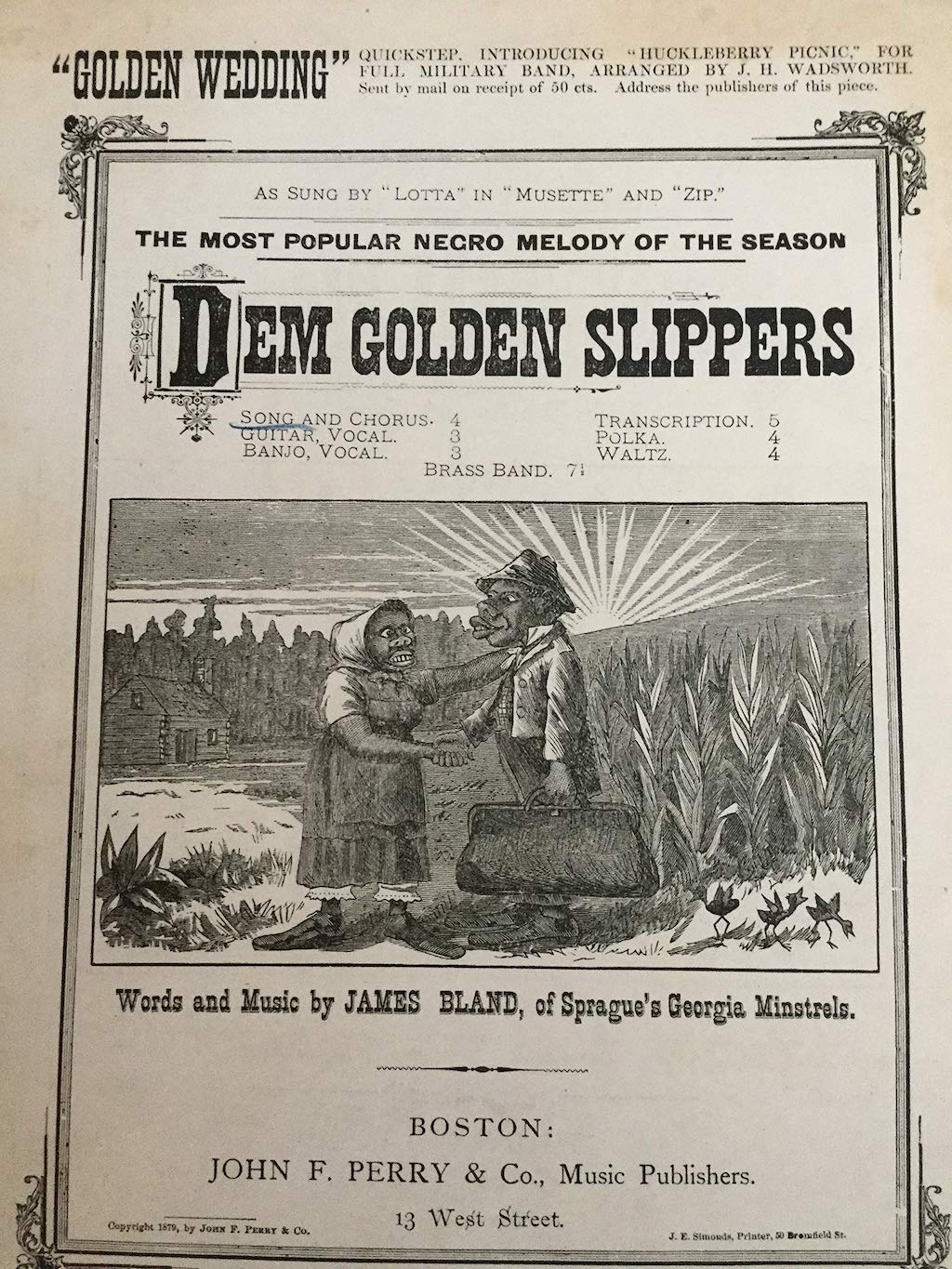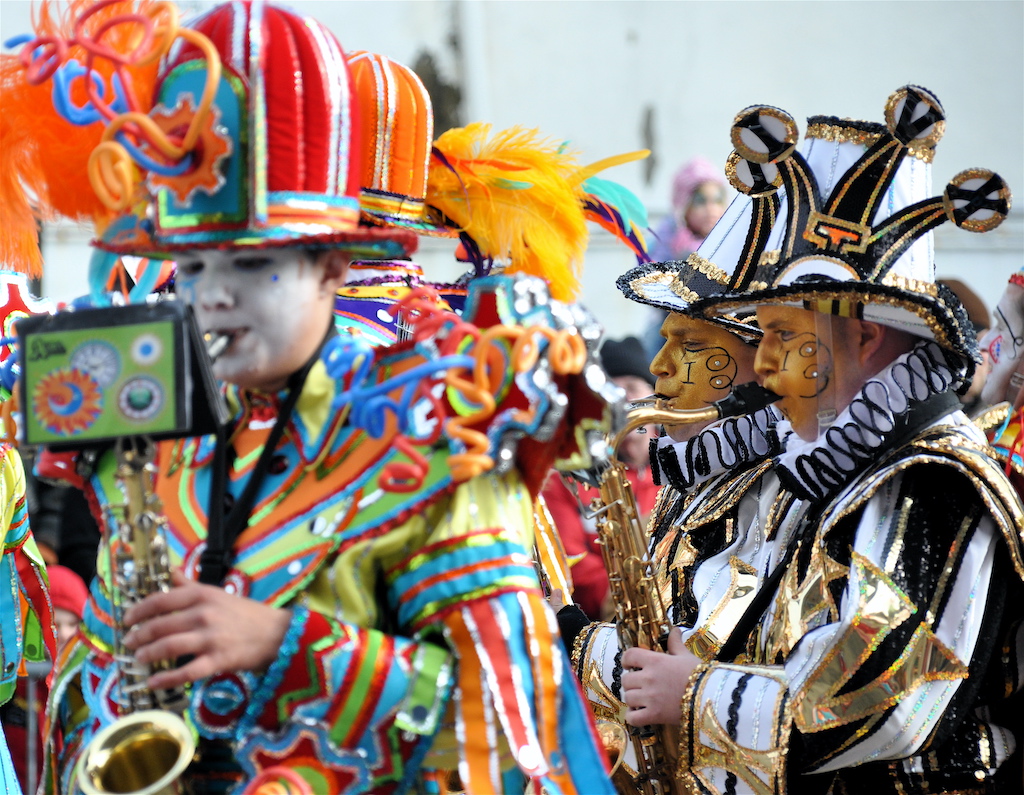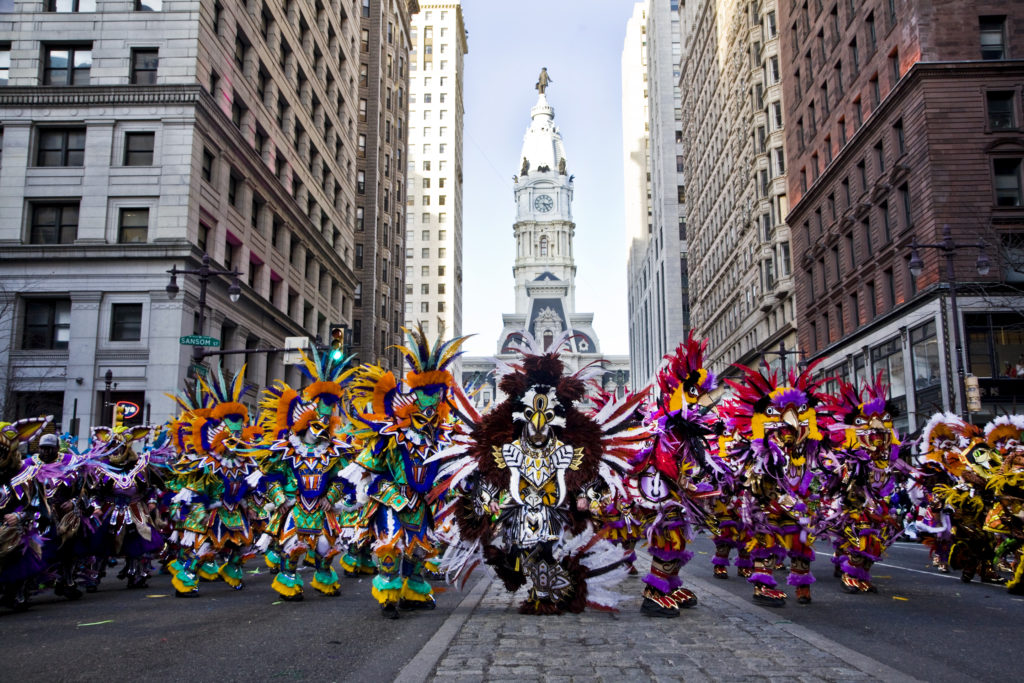
The (now 118th) annual Philadelphia Mummers parade’s pre-colonial roots have been traced to the New Year’s celebrations of Northern European and African-American settlers in the mid-1600s. According to the documentary, “Strut,” the influence of Southern plantation life is evident in the cakewalk-like “strut” that is the Mummer’s signature dance – which is usually performed to “Oh, Dem Golden Slippers,” by African American composer James Bland, a 19th century minstrel song that is played and sung all day long on New Year’s.
Hailed as the greatest and most prolific African-American songwriter of the late 1800s, James Bland penned the “Oh, Dem Golden Slippers” tune as a minstrel show song set in the style of a spiritual. The song’s first stanza tells of the protagonist setting aside such fine clothes as golden slippers, a long-tailed coat and a white robe for a chariot ride in the morning (presumably to Heaven) and leads to the still -popular refrain, “Oh, dem golden slippers!”

Born in Flushing, N.Y. in 1854, James A. Bland grew up in a family with rare educational advantages. His father, Allen Bland, a free Black from South Carolina, had attended Oberlin, then graduated from Wilberforce before moving his young family to Philadelphia where Bland, according to legend, first heard an elderly Black street musician and fell in love with the banjo. Bland composed anywhere from 600 – 700 popular songs and was glowingly referred to as “The Best Ethiopian Song Writer in the World” and “The Prince of the Colored Song Writers.” However, he was a poor money manager.
In 1881, James Bland traveled to England as a member of the Callender–Haverly Minstrels. They were very popular and were highlighted before Queen Victoria and the Prince of Wales. At that time, he was making about $10,000 a year, which was quite a bit of money for those years, but Bland was careless about his money. Penniless, he managed to return to the U.S., where a friend got him a job in Washington, D.C. From there he moved to Philadelphia, where he died of tuberculosis on May 5, 1911. and was buried in just outside the city.
For over 25 years his memory languished as he faded into obscurity an unmarked pauper’s grave and some of his music was miscredited to Stephen Foster or John Philip Sousa. In 1939, American Society of Composers, Authors, and Publishers (better known as ASCAP) found his grave and erected a granite monument in Bala Cynwyd’s Merion Cemetery. In 1970, James Bland was inducted into the Songwriters Hall of Fame, and musical scholarship sponsored by the Lions Club continues to this day.
While the “Oh, Dem Golden Slippers'” creator rest in peace mere miles from where the Mummers party annually to the sounds of his music, the parade continues to raise ire over the themes they use in the parade that make fun of current issues and news stories such as those involving religion, ethnicity and feminism. Women were not officially allowed in the parade until the 1970s. And while a 1964 city policy officially ruled out blackface, it still manages to appear.
Today’s Mummers incorporate the costumes of the many ethnic groups that have influenced American culture, but none more so than an African American-penned ragtime that continues to be a number one hit in every Philly heart.

Images: M. Edlow
About Post Author
Discover more from dosage MAGAZINE
Subscribe to get the latest posts sent to your email.

